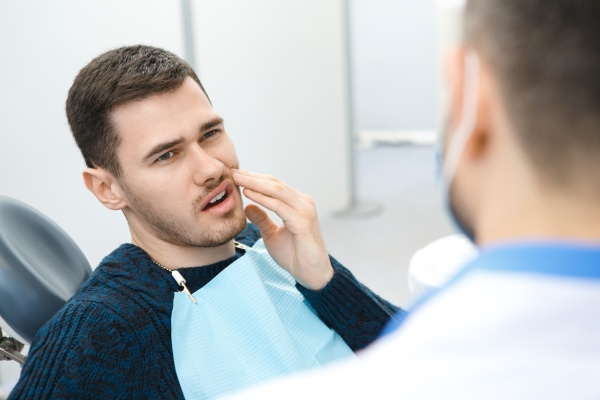Ask a Dentist: What is the Right Sleeping Position for TMJ?

Temporomandibular joint syndrome, commonly referred to as TMJ, is a pain in the jaw joint that can be caused by joint abnormalities, arthritis or other medical conditions. Common treatments include dietary changes, stress reduction, muscle stretching, physical therapy and anti-inflammatory medications. Changing sleep positions can also reduce symptoms in some cases.
How sleep position affects TMJ symptoms
Strain on the head, neck, face or jaw can worsen TMJ symptoms. Waking up with increased levels of jaw pain can be a sign that sleep position is making symptoms worse. How a person positions the body during sleep can affect multiple factors that contribute to jaw pain:
- Teeth grinding and clenching
- Muscle tension and strain in the head, neck and shoulders
- Head and neck support
- Pressure on the head, neck and jaw
Sleep positions that may help and ones to avoid
Sleeping on the stomach or side can push the jaw back towards the skull or to the side, depending on the head position of the sleeper. This increased pressure on the jaw can intensify symptoms. Additionally, turning the head to the side while sleeping may create tension that makes TMJ worse.
Sleeping on the back is considered an ideal position for reducing pain because it avoids pressure on the jaw, keeps the head and neck in better alignment, provides increased support for the head, neck and shoulders and makes it less likely that teeth clenching or grinding will occur. However, it is important to avoid creating tension in the neck by elevating the head too much. Back sleepers should avoid using pillows that are too firm or too thick and refrain from propping their heads up with their hands because this can create neck strain.
Pressure on the jaw can be further reduced by training the tongue to rest on top of the teeth. Relaxing the tongue on top of the teeth helps to keep the jaw slightly open, which can reduce the chance that teeth clenching or grinding will occur.
Sleeping flat on the back can make some health conditions such as sleep apnea and acid reflux worse. People who have health issues that may be impacted by their sleep habits should consult with a doctor to determine whether changing sleep position is an appropriate TMJ treatment option.
Adjusting to a new sleep position
According to sleep surveys, only about 10-15% of people sleep on their backs, and many individuals have difficulty adjusting to back sleeping. This transition can be made easier by placing a small pillow under the arch of the spine and sleeping on an adjustable mattress or a mattress that conforms to the body. A supportive orthopedic pillow may also help hold up the neck. Experimenting with different arm and leg positions may also increase comfort. However, placing the arms over the head should be avoided.
Conclusion
Patients with persistent jaw pain should consult a medical professional for an evaluation of the problem and determination of appropriate treatment options. Changing sleep positions can be helpful for many people, but they may not work for everyone.
Request an appointment here: https://www.mytotaldentistry.com or call McCarthy Dentistry at (740) 546-5178 for an appointment in our Marietta office.
Check out what others are saying about our services on Yelp: Read our Yelp reviews.
Recent Posts
Dental implants and dentures are two common options for replacing missing teeth, each offering unique benefits. Understanding their key differences can help patients choose the most suitable solution for their oral health and lifestyle. While both restore the smile's function and appearance, there are significant differences in durability, comfort, and maintenance.One of the biggest differences…
Dental implants can prevent tooth loss from affecting oral health, facial structure, and overall quality of life. While tooth replacements like traditional dentures and dental bridges provide functional and aesthetic improvements, implants offer superior advantages in durability, jawbone preservation, and smile aesthetics. Understanding these benefits can reveal whether dental implants are your best option for…
Selecting an effective way to replace missing teeth can be a significant decision, and dental implants often offer a dependable solution that restores both function and appearance. These specialized fixtures fuse with the jawbone to form a solid foundation for replacement teeth. However, it is important to note that not everyone automatically qualifies for this…
Tooth loss affects many people, but dental implants provide a reliable and lasting solution. Unlike other options, implants replace missing teeth in a way that looks and feels natural. They improve oral health, restore function, and enhance appearance. Understanding why implants are the preferred choice can help you make the best decision for your smile.Designed…


